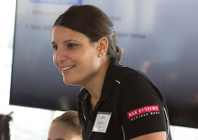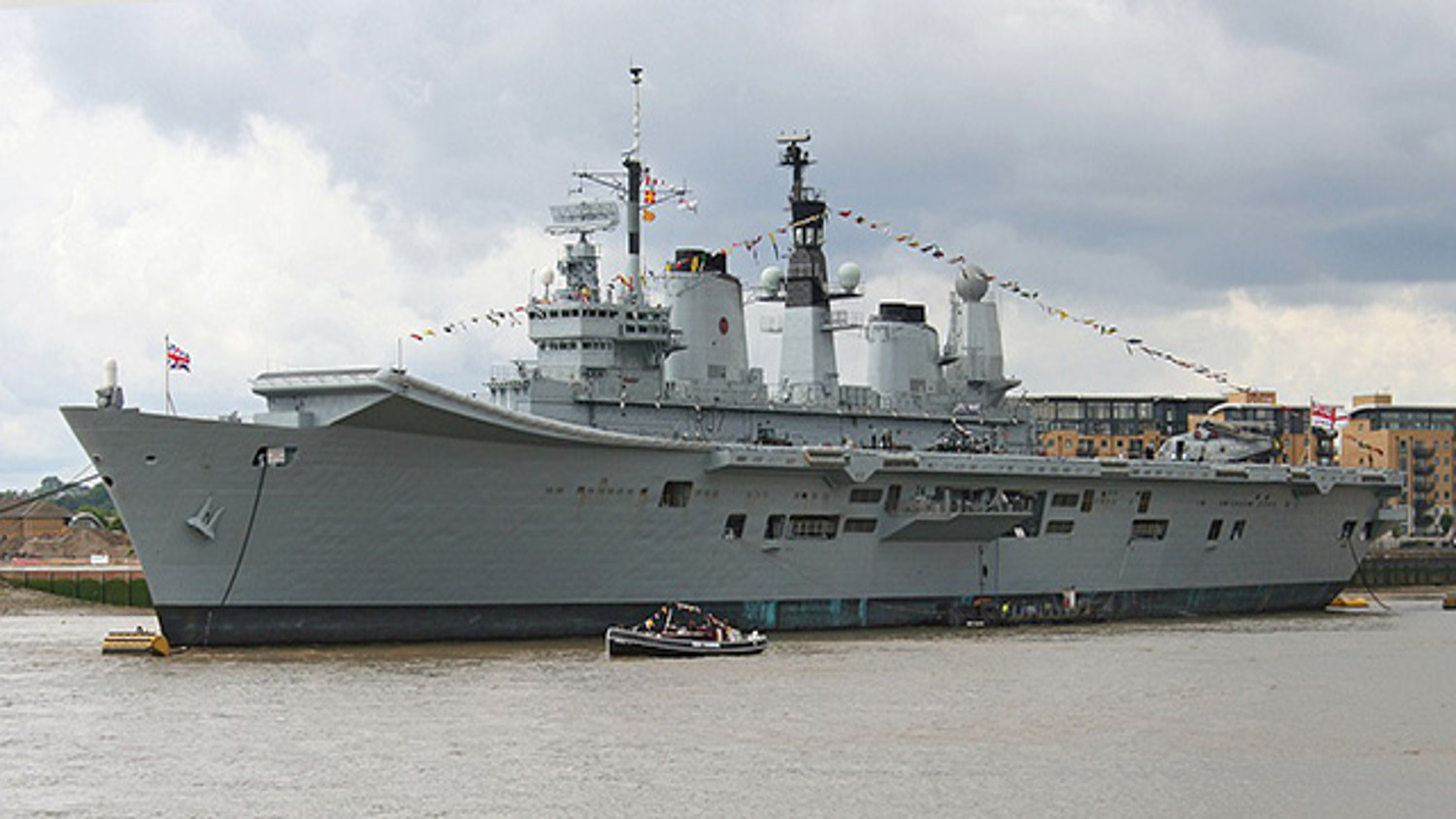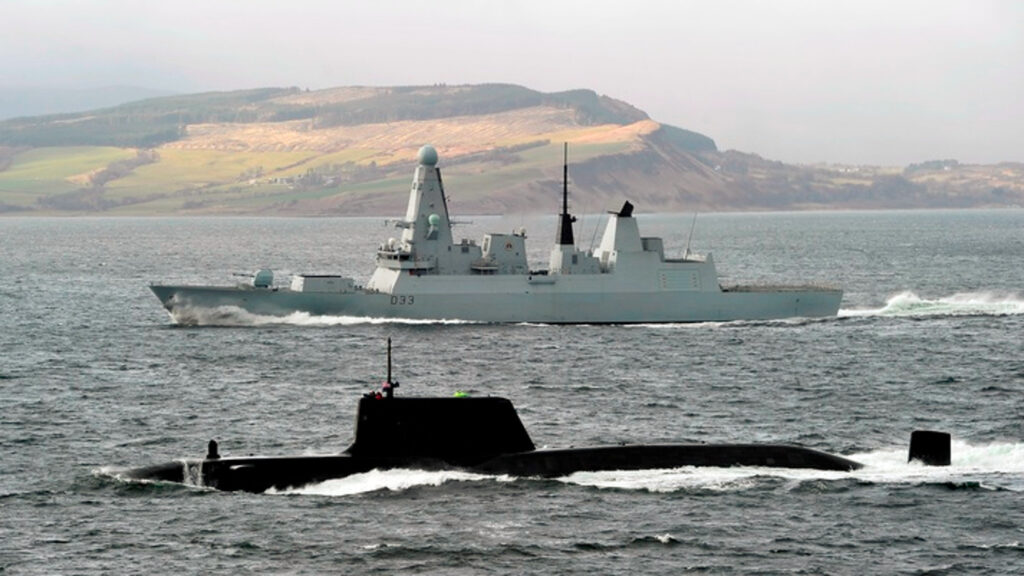Whether you’re still in education or a few rungs up the career ladder, we could all do with inspiration to show us what is achievable and to gain an insight into what others are doing in the field. 
This month our role model is Amelia Gould, head of engineering for Naval Ships Combat Systems based at BAE Systems in Portsmouth
Following a first class master of engineering degree at the University of Oxford, Amelia Gould joined the Royal Navy as an engineering officer, just three years after women were first officially allowed to go to sea on warships.
She served onboard HMS Ark Royal during the war in Iraq in 2003, where she was responsible for ensuring the availability of the Communication and Information Systems onboard.
After leaving the Royal Navy she spent five years as an Information Technology (IT) consultant and Business Analyst in both public and private sector organisations.
In 2013 Gould joined BAE Systems as the Royal Navy Type 23 (T23) Frigate Combat System design manager and in November 2016 she moved to her current role as head of engineering for Naval Ships Combat Systems.
What inspired you to become an engineer?
Although I initially wanted to work in Space, my father told me to keep my interest in Space as a hobby and instead get a ‘proper’ job that pays like engineering. My science teacher then arranged a three day introduction to engineering for girls course at Brunel University. I spent the time there solving problems and building models out of spaghetti and marshmallows. I was hooked!
What do you most enjoy about your job?
I love hearing the perspectives of the different people I work with and going through the process of looking at the problem from various angles before coming up with a creative solution. It is so satisfying to see something I have been involved in creating actually making a difference in the world.

The HMS Ark Royal on which Gould was responsible for the computing and weapon systems, before moving into the private sector and now BAE Systems
What has been a career high or an achievement you’re most proud of?
Passing out (graduating) at Britannia Royal Naval College at Dartmouth was one of my professional highlights. I found it very hard as a young midshipman adjusting to the military way of life and being away from home, but it gave me a real sense of pride to finally graduate with all my family watching.
As a young engineering officer onboard aircraft carrier HMS Ark Royal in 2003, during the war in Iraq, I was responsible for the computing and weapon systems, ensuring they were available and ready to perform at all times. When the ship returned to Portsmouth it was wonderful to see the welcoming masses waving flags and cheering for the work we did to keep the country safe.
Seeing new systems I have been involved in designing or integrating go to sea for the first time on an operational warship are always special personal moments. They epitomised what drew me into engineering in the first place: being involved in delivering awesome things that make a difference to the world.
In 2016 you received a Women in Defence Award for Promotion of Gender Diversity. What is your view on diversity in the engineering workforce?
We need more diversity in the engineering workforce to enable greater diversity of thought, which has been proven to increase innovation and productivity.
We need to be better at using all of the talent pool available to fill the STEM vacancies we have in this country. If we increased the number of women in STEM to match the number of men it would be worth some £2bn per year to the UK economy. This is not an inconsequential sum of money and could be re-invested in public services such as schools and hospitals.
I have also been focussing recently on promoting neurodiversity. Only 16 per cent of adults on the Autism spectrum are in full time employment, which is a real shame when many have amazing skills and intellect.
You’re also a STEM ambassador and school governor. We all know that we need more engineers and so we have to inspire young people (and especially girls) to consider engineering as a career. What can we do as parents and professionals to entice young people into engineering?
One of the biggest barriers to girls choosing STEM careers is their mothers, who worry about their daughters working in an all male environment [from WISE Not for People Like Me Report]. I think employers need to do more to help schools and parents understand the range of careers available in Engineering.
I am still amazed when I talk in schools that people still think that being an engineer is one job, and not a thousand different things across hundreds of different sectors.
People don’t see engineering in their day to day lives in the same way they see doctors, teachers, bus drivers etc. Work experience, STEM outreach events and the media should all be used to raise the profile of engineering and show how it is part of everything we do, use and touch day to day. I think the Government launching 2018 as the Year of Engineering will go some way towards achieving that.
With the advantage of hindsight, what career advice would you give to your younger self?
Take all the opportunities you are given and never be afraid to try something new – you will grow and learn from every new experience.
If you were hosting a dinner party who would you invite and why?
Richard Branson – inspirational businessman who was not held back by his dyslexia and still succeeded. Professor Brian Cox – interesting science geek. Susie Imber – a normal ‘girl next door’ person with extraordinary resilience and humility.






